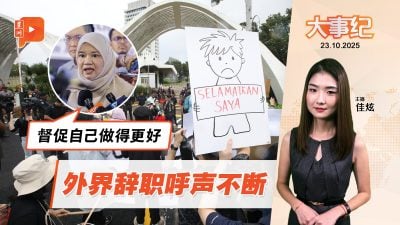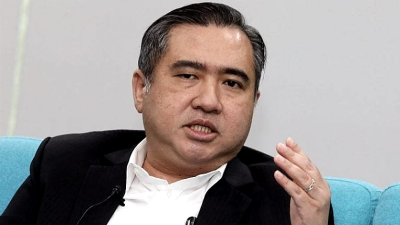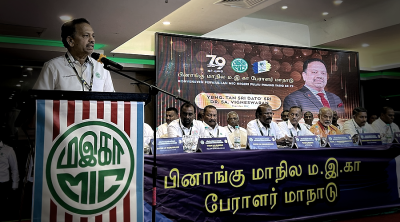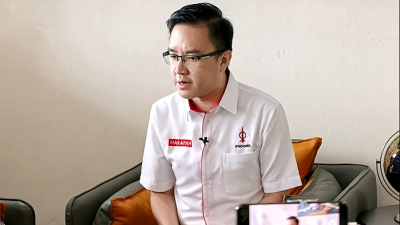
Despite public indignation, Malaysia is preparing to welcome a figure whose legacy is written not in diplomacy, but in destruction.
As the fires in Gaza continue to burn, with tens of thousands killed and millions displaced, the reappearance of Donald J. Trump on the international stage poses both moral and strategic question of the highest order: will Malaysia, long a voice of conscience for the oppressed, now offer a red carpet to one of the most unrepentant enablers of genocide?
To frame what is unfolding in Palestine merely as another “war” is to make truth complicit in its own erasure.
As UN human rights expert Francesca Albanese has stated with unflinching clarity, “It’s not a war, it’s a genocide where there is a determination to destroy a people as such.” A war, however tragic, can still end in negotiation or treaty.
Genocide, by contrast, defeats the very logic of resolution—it is not a conflict but an extermination. It leaves no side to reconcile, no humanity to salvage.
When leaders continue to speak of “ceasefire” and “peace deals” in the face of mass annihilation, language itself becomes complicit in denial.
However, Trump has long perfected this theater of denial. As president, he unconditionally aligned the United States with Israel’s most extreme ambitions—decisions that did not merely embolden its far-right regime but dismantled the last remaining checks on impunity.
Today, the same figure who ignited that fire now blames Hamas for “breaking the ceasefire,” though it was Israel that violated it.
To call for calm while bombing continues unabated with Washington’s blessing is not statesmanship—it is the language of America’s moral and institutional collapse (see “Endless wars, two Americas, one failing machine”).
Indeed, to speak of a “ceasefire” with Zionist Israel is like pouring salt into the ocean.
For decades, the regime has never ceased fire—only paused to reload. Each round of “peace talks” or “temporary truces” has merely masked further annexation, land theft, and the erasure of Palestinian life.
The notion that Trump, co-architect of this machinery of dehumanization, could serve as a peacemaker is an absurdity so complete it mistakes itself for diplomacy.
Meanwhile, the spectacle continues. Trump’s self-promotional “peace tour” has already made stops in Tel Aviv and Cairo, bringing together wealthy nations and compliant elites eager to buy influence through promises of investment in the United States.
Despite the photo opportunities, nothing has changed. Gaza still burns. Children still die.
Even the most resource-rich states in the Middle East—Turkey, Egypt, the Gulf monarchies—have been unable or unwilling to stop the bloodshed.
If their wealth and proximity cannot halt the bombs, what realistic chance does Malaysia, or even ASEAN, have to influence a man who treats genocide as negotiation?
What we are witnessing is not diplomacy but theater: a Trumpmania roadshow, performed on the world stage to disguise cruelty as charisma.
The danger lies not merely in his presence but in the illusion that engagement with him serves strategic purpose.
As EMIR Research has previously observed in “Zionism at the edge: The terminal overreach of a fading project,” the moral and institutional foundations that once upheld U.S.–Israeli dominance are now disintegrating.
The American military-industrial complex continues to fuel wars on autopilot, beyond the control of any single president. Trump’s previous term exposed this fragmentation—his “peace” overtures collapsing even as bombs fell, his commands ignored by the machine he nominally led.
This is why Trump’s rhetoric of deal-making is so dangerous. It seduces nations into believing that peace can be brokered through personality, not principle.
But Trump cannot offer peace, because he cannot even command coherence within his own government.
To mistake his theater for substance is to misread the nature of power itself.
Malaysia, meanwhile, stands at a moral crossroads. For decades, we have been known as a defender of justice and a consistent advocate for Palestinian rights—at the United Nations, within the Organization of Islamic Cooperation, and across the Global South.
Ours has been a voice of moral clarity, often punching above our diplomatic weight.
To now host Trump in Kuala Lumpur or within ASEAN’s fold, while his words and weapons continue to destroy Gaza, would mark a dangerous departure from that legacy.
It would signal that Malaysia’s moral compass is negotiable, that principle can be traded for protocol.
Supporters of engagement will argue that Malaysia must remain pragmatic—that neutrality requires talking to all sides. But neutrality does not mean moral blindness.
Trump’s record shows contempt not only for human life but for international law itself.
To honor such a figure in Malaysia—through grand ceremony, official welcome, or civil awards—would be to legitimize brutality as diplomacy. It would make us participants in the ongoing erasure of a people.
This is not merely about optics or foreign policy; it is about dignity. Malaysia’s hosting of Trump, even symbolically, would not strengthen ASEAN’s influence but erode it.
It would turn the region’s long struggle for neutrality into a spectacle of submission.
The photo opportunity would outweigh the principle, just as Trump’s smiles and handshakes have repeatedly outweighed the cries of the bombed and the buried.
The danger is not that Malaysia will offend a superpower, but that it will lose its moral authority in the world—a currency far more valuable than any investment or trade deal.
As EMIR Research has argued in its analyses of U.S. decline and global multipolarity, the world no longer revolves around American favor (see “Through the BRICS mirror: The West in reflection”).
The future belongs to nations that can stand firm in principle while engaging the world on equal terms.
Malaysia’s recent leadership in calling for humanitarian justice and South–South cooperation has positioned it as precisely such a nation.
To bow before Trumpmania now would undo that hard-earned standing and reduce ASEAN to a backdrop for political theater.
There comes a time when silence or protocol becomes complicity.
When babies, women, and the elderly are bombed out of existence, their bodies harvested for organs, their land stolen for gas and real estate, gestures of “diplomatic courtesy” become obscene.
To roll out the red carpet under such conditions is not statesmanship—it is pure servitude.
If this, then, is the show Trump intends to bring to Malaysia and the wider ASEAN stage, let us be clear about what it represents: not leadership, but the last performance of a fading empire.
Malaysia must not lend its name to that theater. We must act not as audience but as conscience.
Perhaps, for the sake of irony, Malaysia could indeed bestow upon Donald J. Trump our highest honorary civil award—while recommending him for the Nobel Peace Prize he so covets.
But let that nomination come not as tribute, but as mirror. Let it reflect back to him, and to the world, the grotesque inversion of moral order that now passes for politics.
For when genocide is rewarded and silence is celebrated, the question is no longer whether the fire will cease, but whether we still have the courage to call it by its name.
(Dr Rais Hussin is the Founder of EMIR Research, a think tank focused on strategic policy recommendations based on rigorous research.)
ADVERTISEMENT
ADVERTISEMENT








































